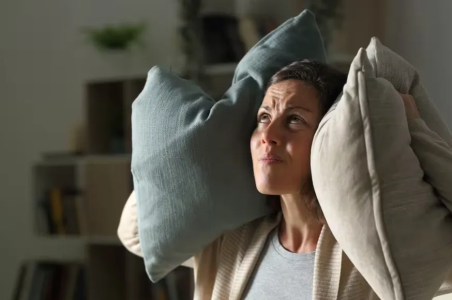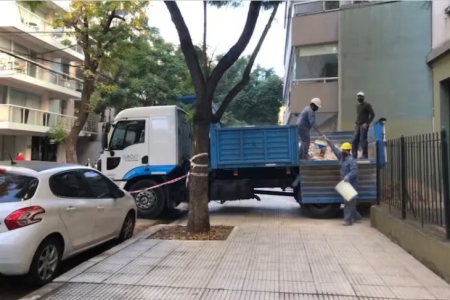BuySellBA
Administrator
What does the law say about noise pollution in Argentina? - La Nación Propiedades

Source:

¿Qué dice la ley sobre ruidos molestos en Argentina?
Los ruidos molestos son uno de los conflictos más frecuentes entre vecinos; qué dice la ley para poder saber lo permitido y lo que se debe sancionar
July 08, 2025
Noise disturbances are one of the most common conflicts between neighbors. What does the law say to know what's allowed and what should be punished?

Annoying noises from neighbors can affect coexistence.
In the city that never sleeps , silence is becoming an increasingly precious luxury. The noise of traffic, construction, parties, bars open until the early hours, and even barking dogs can disrupt sleep, affect mental health , and become a constant source of stress.
Faced with this problem, the Autonomous City of Buenos Aires has specific legislation that seeks to protect residents from noise pollution: Law No. 1540 , known as the Noise Pollution Control Law.
Passed in 2004, the regulation aims to "prevent, control, and correct noise pollution that affects both human health and the environment ." It applies to noise and vibrations caused by both fixed and mobile sources, ranging from commercial premises and construction machinery to vehicles, household appliances, and human behavior.
The law establishes maximum permitted noise emission limits based on the area, time of day, and type of activity. It also defines the technical criteria for measuring sound intensity, control methods, and penalties for violations.

Construction work may be carried out at times determined by current regulations.
According to this standard, any noise that is considered annoying is:
- Exceeds the permitted decibels (e.g., 55 dB during the day and 45 dB at night in residential areas)
- Occurs continuously or repeatedly
- It causes discomfort to people outside the source of origin
Permitted hours and penalties
Generally speaking, the law is stricter at night , between 10 p.m. and 7 a.m. During this time, controls are intensified and the tolerance threshold is lowered.
Penalties for violating the law can range from a warning to fines , temporary or permanent closure , and removal of noise-emitting equipment in the case of repeat offenses. In the case of noise caused by individuals, such as parties in apartments, the procedure is usually initiated by filing a complaint.
What's happening in the departments?
In horizontally owned buildings, the Condominium Regulations and Law 941, which regulates the activities of condominium administrators, also include clauses regarding noise disturbance . For example, activities that disturb the building's tranquility outside of permitted hours are prohibited, including both repairs and social gatherings with loud music.
Administrators have the obligation to mediate in conflicts between neighbors for this reason , and in extreme cases, judicial or administrative proceedings may be used.

Annoying noises from neighbors.
What about construction projects?
Another common source of conflict is private construction . According to the law, construction must be carried out between 7 a.m. and 8 p.m. Monday through Friday , and from 8 a.m. to 1 p.m. on Saturdays . Outside of these hours, the use of noisy tools or heavy machinery is prohibited. If a construction project violates these guidelines, residents can report it and request intervention from the Community Control Department.
Although it may seem minor, noise pollution can impact a property's value . Apartments facing busy avenues, above bars or clubs, or near logistics or industrial centers often have lower appraisal values than those located in quieter areas. In some cases, it can even be a reason to terminate a rental agreement if it can be proven that the noise seriously affects the habitability of the property.
How to report a noise disturbance
While the ideal is to talk to the person responsible for the noise , when that doesn't work there are several channels to file a formal complaint:
- Calling 147 : the citizen service of the City Government.
- Through the website or the “BA 147” app , selecting the “Annoying noise” option.
- In complex or repeated cases, you can go to the Environmental Protection Agency (APrA) , which has jurisdiction over noise pollution.
You can also report it to the corresponding police station or to the City Prosecutor's Office , especially if the incident constitutes a violation.
It is important to clarify that this law applies exclusively to the City of Buenos Aires . In other jurisdictions, such as the province of Buenos Aires or the rest of the country, similar local regulations exist, but with their own rules. It is always a good idea to consult the current ordinance of each municipality.
www.buysellba.com


